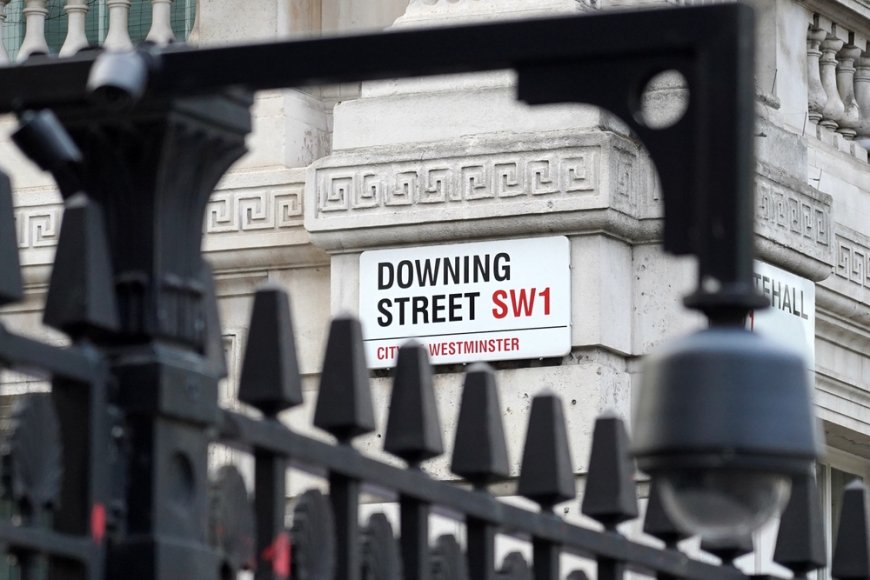Who Leads the Leaders?
As the Chief Advisor prepares to meet with Keir Starmer in the UK, it is worth looking at how the two men are similar, how they differ, and what lessons each can learn from the other.

If there is one thing predictable about President Donald Trump’s leadership style, it is unpredictability.
Satirists can ask Trump to spread out the surfeit of material he provides them but -- health permitting -- his return to power leaves him freer than ever to issue ever changing decrees.
His wealthiest enablers can use money market arbitrage to ride out and profit from any instability and chaos his decisions might bring, unlike most of his actual voters.
Trump himself, as a man born wealthy with little by way of fixed beliefs, is an outlier among the various charismatic ultra right-wing demagogues who have flourished in 21st century elections worldwide, as conventional politicians have floundered.
The likes of Modi, Orban, Erdogan, Netanyahu, and Putin have much more deeply held ideological convictions based upon their varying mixtures of ethnonationalist paranoia, authoritarianism, racism, and religious sectarianism. In two cases at least, their opportunism
includes prolonging bloody wars to reduce their own personal risks of facing prosecution.
A big ego and tiny attention span are easy to observe parts of Trump’s personality. As are his tastes for golf, ostentatious bling, and fast food. When he is in the mood, he can be easily pleased.
Of course, it helps if you’re a Middle Eastern monarch proffering business deals for his sons and can react cooly when he publicly solicits a shiny 400-million-dollar jet as a gift.
Four years ago, it seemed unlikely Trump could return to the White House. On the other side of the Atlantic, few then thought Keir Starmer’s Labour party could quickly win a large majority in the United Kingdom after an historic election defeat. With more than a little help from the incumbents they faced, both succeeded in 2024.
By early summer last year, their victories had of course become entirely foreseeable. The same cannot be said for Nobel laureate Prof. Mohammed Yunus becoming Chief Adviser of Bangladesh’s Interim Government, after the Monsoon Revolution successfully resisted brutal state violence to overthrow Sheikh Hasina.
On June 10-13, the Chief Adviser is scheduled for an official visit to the United Kingdom. No doubt, diplomatic niceties will smooth over any awkward (and amusing) questions during his meetings with Keir Starmer about the UK’s recently resigned Economic Secretary to the Treasury and City Minister.
With both leaders nearly a full year into office, but neither seeming entirely comfortable despite the huge failings and unpopularity of those that they replaced, it is a timely moment to look at their leadership styles.
Starmer differs from the Chief Adviser in having sought office whereas Yunus has had it thrust upon him. True, during the military-backed caretaker government of 2007 and 2008 when “minus-two” was in the air, Yunus allowed his name to be floated for leadership, but that was swiftly withdrawn.
Ironically, Sheikh Hasina’s resultant irrational victimization combined with Professor Yunus’s global reputation, is what made him so widely acceptable as Chief Adviser and continued to do so after he recently expressed a desire to quit.
Yunus and Starmer share the weakness of not often being seen to set clear agendas themselves, but to passively follow goals set by others.
Labour’s flagship goal of building more homes for instance, leads with the corporate lobbyists’ mantra of ‘ripping up planning laws’ rather than the more obviously sustainable (and popular) route of training more builders.
More surprisingly given its majority, it seems predisposed to appease rather than defeat the toxic rhetoric of the deep right-wing anti-
migrant Reform party of Nigel Farage, which is currently running high in opinion polls.
Starmer at least has the mandate of a full parliamentary term to change the narrative. Chief Adviser Yunus however must try to meet the revolution’s hopes for a decisive break from past systems of corruption and misrule, rather than cosmetic changes at the top.
Whilst this was probably too much to expect within ten months, some missteps could have been avoided had the Chief Adviser led the way in shaping visions for meaningful reform.
With Bangladesh’s track record of economic progress since independence and the reputation of the Grameen Bank both tied to policies favouring female empowerment, it is hard to fathom why Yunus was not more assertive in championing much needed recommendations from the Women's Affairs Reform Commission.
Given the Chief Adviser’s history of being legally harassed by the state, why did he not pick the easy fruit of restricting the ease with which Bangladesh’s legal system can be flooded with spurious cases?
Or put more resources into securing evidence for prosecuting the killers of last summer and of those that gave the orders?
Or spell out the strategic political value of not giving the remnants of the AL any talking points and to note it would be more fitting for democracy to see the party soundly rejected in an election, than banned.
I know “should have/could have” statements don’t change the present, but the interim administration has had more than a few preventable surprises on its watch.
Of course, it also has some economic successes, but uncertainty still blights investment in key sectors and at the macrolevel, policymakers are still complacently content with Bangladesh’s economy being based on an exploitative low-investment low-wage paradigm.
More depressingly still, the small number of students appointed as advisers and those at the helm of the newly formed NCP no longer seem representative of the broad-based nature of people involved in the revolution, as they have coalesced in ever decreasing circles around male dominated, socially conservative factions.
The prominent role taken by young women and minorities is actively being overlooked. This does not feel very revolutionary. Nor is it
strategically sensible if it limits their popularity and gives comfort to the usual suspects.
I wish I could be more optimistic about the likelihood of meaningful reforms, but time only moves in one direction. The long run will keep getting shorter and one day the interim government will no longer have time to change the path the nation is on.
Niaz Alam is the Dhaka Tribune London Bureau Chief.
What's Your Reaction?















































































